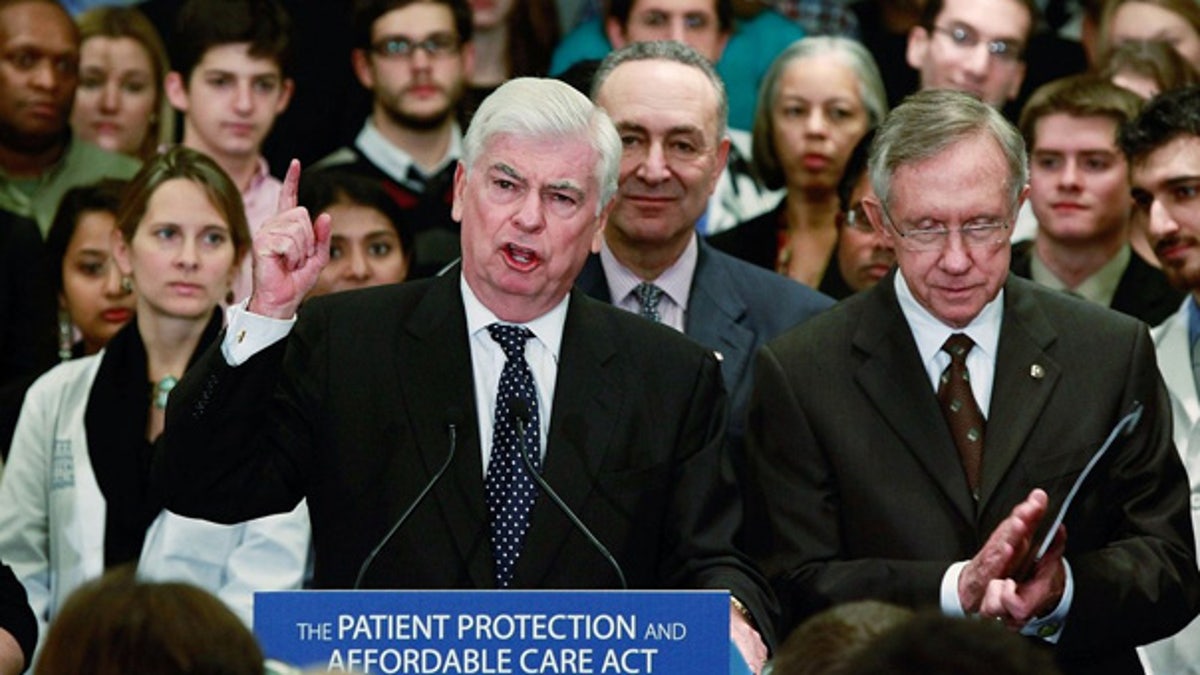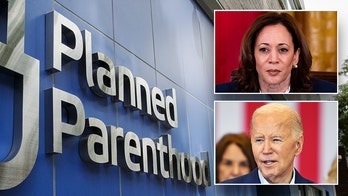
Nov. 19: From left, Democratic Sens. Chris Dodd, Charles Schumer, and Senate Majority Leader Harry Reid at a health care news conference on Capitol Hill. (AFP)
WASHINGTON -- Digging in for a long struggle, Republican senators and governors assailed the majority Democrats' newly minted health care legislation Thursday as a collection of tax increases, cuts in services for the elderly and heavy new burdens for deficit-ridden states.
Despite the criticism, indications were growing that Democrats would prevail on an initial Senate showdown set for Saturday night, and Majority Leader Harry Reid, the top Democrat, crisply rebutted the Republican charges. He said the bill "will save lives, save money and save Medicare," the main health program for the elderly.
The legislation is designed to answer President Barack Obama's demand to expand coverage, end insurance industry practices such as denying coverage on the basis of pre-existing medical conditions, and restrain the growth of health care spending.
Still, Republicans saw little to like Reid's legislation awaiting the Saturday night Senate vote.
"It makes no sense at all and affronts common sense," said Sen. Judd Gregg, one of several Republicans to criticize the measure. He added that a plan to expand Medicaid, the state-federal program for the poor, was a "bait and switch" with states as the victims.
Republican governors, meeting in Texas, agreed. "We all know a sucker play when we see one," said Gov. Mitch Daniels of Indiana. The bill would expand the Medicaid program, which provides health care for the poor, and leave the states with part of the additional cost beginning after three years. Medicaid is administered by the states.
In the Capitol, Reid answered Republican delaying tactics with an initial vote set for Saturday evening to determine whether he has the 60 votes needed to move the legislation forward. That so-called "supermajority" in the 100-member Senate is required to advance the bill toward full debate, expected to begin after Thanksgiving.
Counting two independents, Democrats control 60 Senate seats. Three relatively conservative Democrats have been cagey about their intentions, although none has announced a plan to defect. Officials disclosed during the day that Reid had included in the bill a political sweetener for one of the three, Mary Landrieu, in the form of $100 million to help her state cover health care costs for the poor.
While the struggle was forming, there were limits. Republican Sen. Tom Coburn backed off his threat to force the 2,074-page bill to be read aloud in the Senate chamber, a move that would have eaten into the Senate's Thanksgiving-week vacation.
Given the political stakes, there was disagreement even about the bill's cost.
Democrats put the price tag at $979 billion, higher than the $849 billion figure they had cited Wednesday as the cost of expanding coverage to 31 million who now lack insurance. Republicans calculated it at more like $1.5 trillion over a decade, and said even that was understated because Reid decided to delay implementation of some of the bill's main features until 2014.
Officially, the Congressional Budget Office said the measure would reduce deficits by $130 billion over the next decade with probable small reductions in the 10 years that follow. Those forecasts cheered rank-and-file Democrats.




